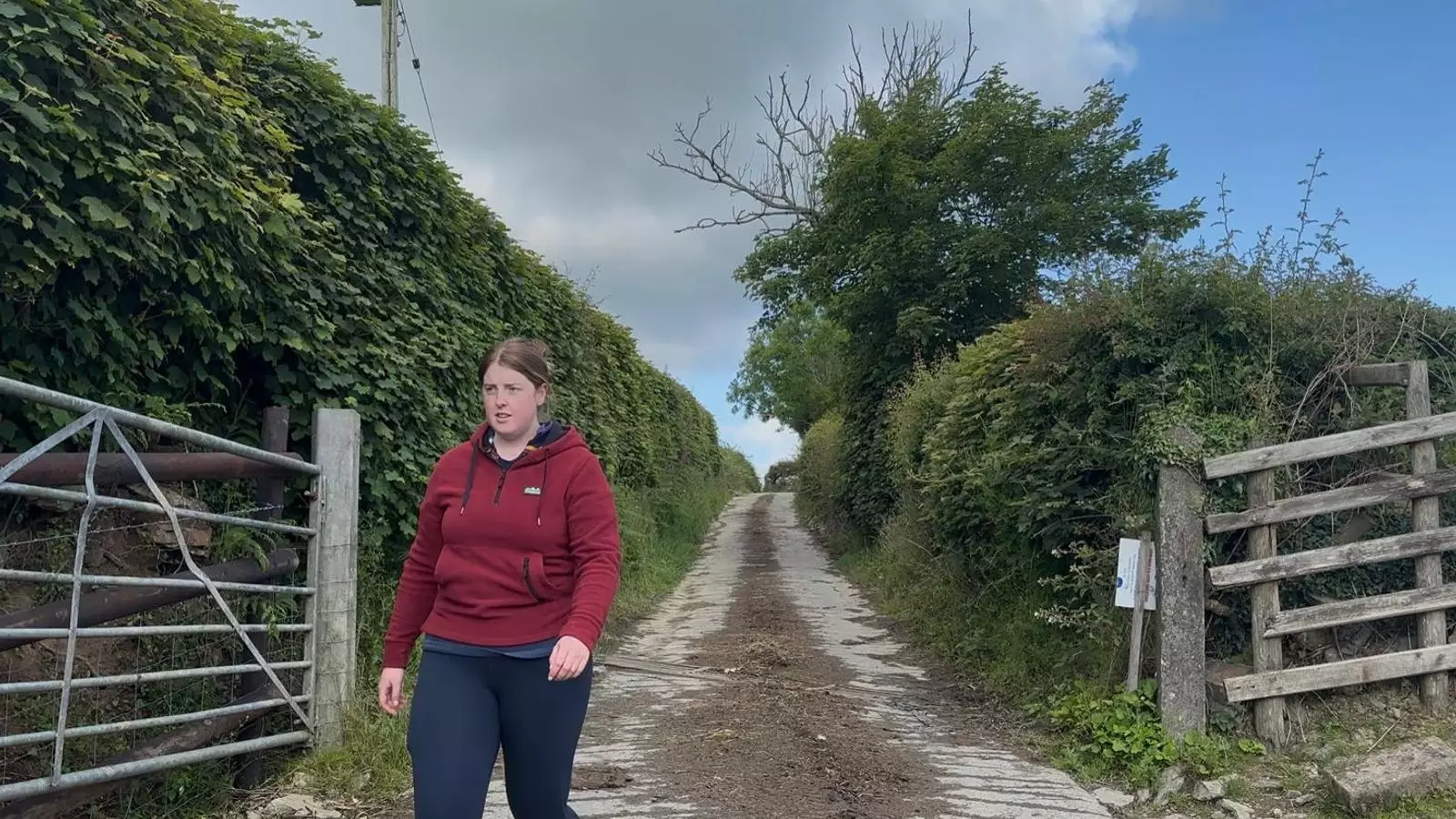For those of us who picture idyllic pastures dotted with livestock, it’s jarring to confront the harsh realities facing rural communities in Wales. A new report highlights that rural crime has reached levels not seen in over ten years, costing an estimated £2.8 million just last year. This figure, up by a staggering 18% from the previous year, paints a troubling picture for farmers trying to make a living in a sector already rife with challenges. Despite being the only UK nation reporting an uptick in rural crime, the question looms large: why are these violations still occurring in areas often perceived as safe and serene?
Caryl Davies, a young farmer from Pembrokeshire, embodies the palpable fear and anxiety that comes with such crimes. The theft of her family’s quad bike not only robbed them of a vital tool but also stripped them of their sense of safety. Davies articulated a sentiment many in rural communities feel: “It makes us feel really unsafe at home.” Such a feeling is an affront to the fundamental ethos of rural life, which values community and trust. Yet, with each theft, these values are eroded, making way for a pervasive atmosphere of fear.
The Economic Toll on Farmers
The financial ramifications of rural crime extend far beyond mere theft. In Wales, particularly, the cost of replacing stolen agricultural equipment can skyrocket, with quad bikes often nearing £10,000. For farmers already grappling with narrow profit margins, the expense of both replacing stolen items and investing in heightened security measures such as enhanced CCTV systems can feel overwhelming. The reality is stark: the very ecosystem of rural living and farming is jeopardized, not only by criminals but by the systemic issues that cause farming to be a financially precarious way of life.
James Bourne, based in Torfaen, speaks of the heartbreaking loss of over 200 sheep due to theft. Each missing animal is not just a loss of livestock; it’s a hit to his livelihood and the security of his young family. In a world where farmers are already fighting to stay afloat due to market fluctuations and rising costs, the additional burden of theft feels like an affront to the work they put into their farms. It’s a cruel irony that while rural communities are expected to flourish through their hard work, they find themselves fighting both against nature and against opportunistic criminals.
The Insidious Nature of Crime in the Countryside
Andrew Chalk from NFU Mutual highlights a deeply disturbing trend: organized crime factions are specifically targeting rural areas and executing sophisticated, planned raids. Criminals are becoming increasingly adept at using technology, even employing drones to assess the landscape and identify vulnerable targets. This evolution in the modus operandi of rural crime signals a troubling reality—rural areas, once thought of as safe havens, are now vulnerable to well-organized networks of criminals who view them as soft targets.
This is a reality that should ignite alarm across society; if organized crime is penetrating the serene facade of rural life, how far off can we be from viewing rural areas through the same lens of danger that urban centers grapple with? It is this creeping insecurity that transforms rural life from a picturesque existence to one of trepidation. The trust that underpins the community fabric runs the risk of fraying completely.
A Call for Effective Community Action
Fortunately, local law enforcement is not turning a blind eye. The Dyfed-Powys Police have recognized the profound impact of rural crime and have introduced advanced technologies designed to combat these issues. Their efforts to empower farmers through actionable advice and superior asset-marking kits demonstrate a commitment to turning the tide. However, the enormity of the policing challenge cannot be overstated, especially in vast rural areas where resources are limited.
The commitment from local authorities is commendable, but it raises another question: is it enough? Can community vigilance and technology alone safeguard farmers from increasingly bold criminals? Perhaps it’s time for a broader societal response, one that acknowledges rural crime as part of a larger socio-economic dilemma. Policy reforms aimed at sustaining the farming sector and reinforcing community ties could offer a more lasting solution than reactive patrolling methods.
Despite recent statistics showing a decline in rural crime across the UK, the situation in Wales underscores the urgent need for a multifaceted approach. Communities shouldn’t just be on high alert; they should be empowered to collaboratively fight back against this tide, ensuring the essence of rural life remains intact. After all, the heart of a community beats strongest when its members stand united against the challenges they face.

